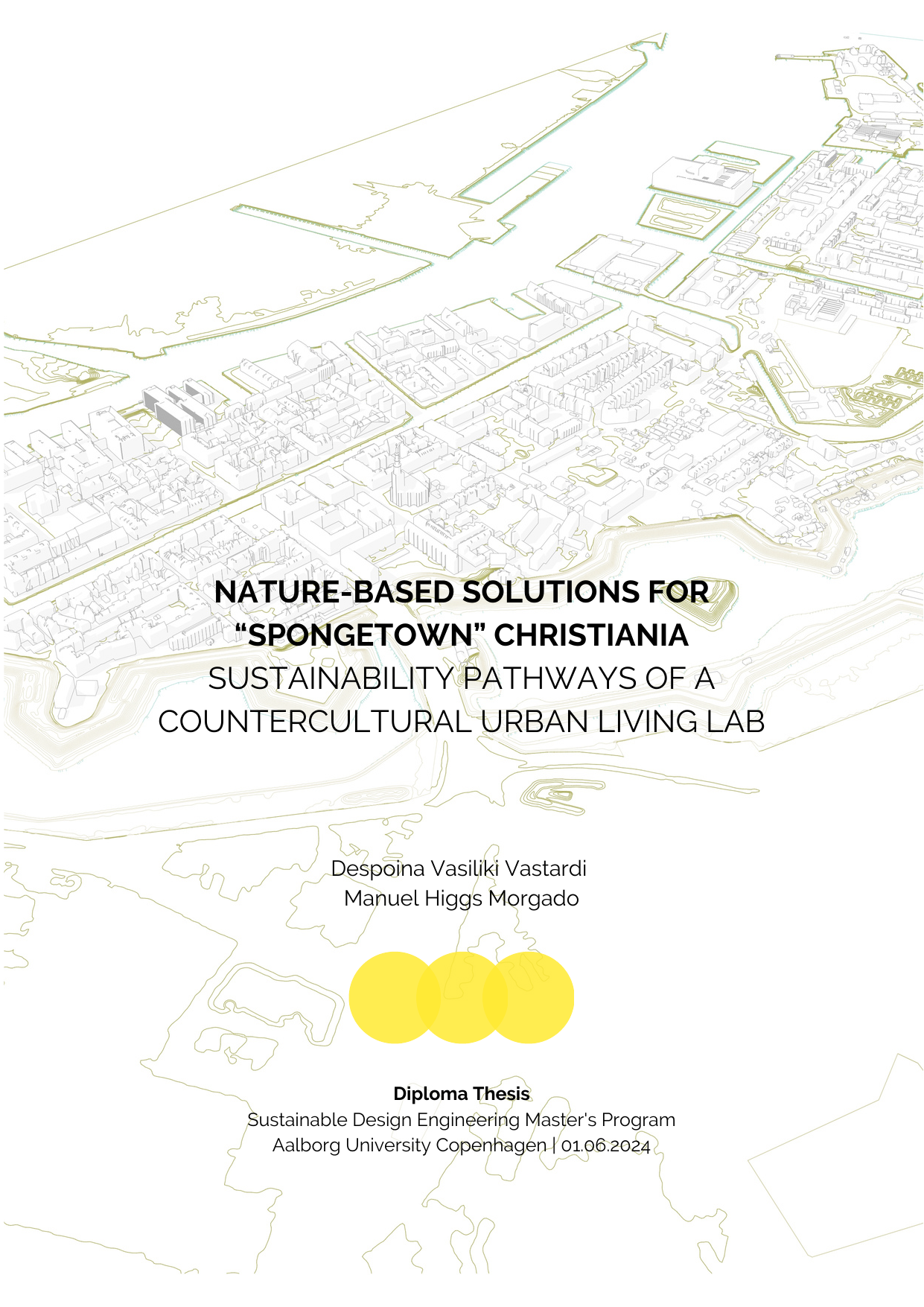
Nature-Based Solutions for "Spongetown" Christiania: Sustainability Pathways of a Countercultural Urban Living Lab
Term
4. Term
Education
Publication year
2024
Submitted on
2024-06-07
Pages
200
Abstract
Christiania, a countercultural anarchist urban niche in the Danish capital offers insights from decades of decentralised, community-driven sustainability experiments. The “Freetown”’s pionner engagement with Nature-Based Solutions (NbS) is a grassroots initiative challenging conventional urban governance (Coppola & Vanolo, 2014). Our study explores Christiania's relationships with Copenhagen’s urban systems and climate-adaptation strategies, leveraging Transition Management (TM) and Strategic Niche Management (SNM) to address interconnected sustainability challenges (Jørgensen, 2022) within the framework of Planetary Boundaries (PBs) and Sustainable Development Goals (SDGs). We employ a grounded theory approach to bridge Actor-Network Theory (ANT), the Multilevel Perspective (MLP) on Transitions, TM, and SNM (Stiles, 2020). This connects socio-technical ideas with bio-inspired and socio-ecological NbS approaches (McPhearson et al., 2022) towards a Multi-Criteria Decision Analysis (MCDA) process. We prospect the socio-technical, institutional, and socio-ecological domains of urban sustainability practice, focusing on empowering Christiania's NbS and the transition processes of Copenhagen and international institutions. Our research includes literature reviews, interviews, participatory observations, and urban analysis based on Resilient, Circular, Symbiotic, and Regenerative (RCSR) paradigms (Horn & Proksch, 2022), exploring how TM and SNM guide multi-level interactions away from grey-centralized systems (Agaton & Giulia, 2023; Vymazal, 2022) towards a Sponge City Copenhagen agenda. Christiania's exceptionalism could facilitate ecosystem services (ES) valuation pathways in Copenhagen and globally. As an informal Urban Living Lab (ULL) (Florez-Ayala et al., 2022), Christiania can significantly advance Copenhagen’s Sponge City ambitions. We identify key actors, drivers, barriers, and scenarios for expanding Christiania’s niches to advance Green-Blue Infrastructure (GBI) and integrated urban water management (IUWM) systems (Liu et al., 2019). A novel IUCN-DGNB strategy for sustainable urban development is proposed for Christiania’s Local Plan. “Spongetown” Christiania envisions design options for promoting NbS and GBI for IUWM. Integrating RCSR paradigms into a shared NbS agenda formalizes community-led innovations within municipal strategies. Future pathways suggest merging sociotechnical, techno-economic, socioecological, and neo-institutional approaches towards ES integration in lifecycle assessment and urban sustainability certification processes. Christiania is poised to become a pilot project for these efforts, as our collaborative research demonstrates.
Documents
